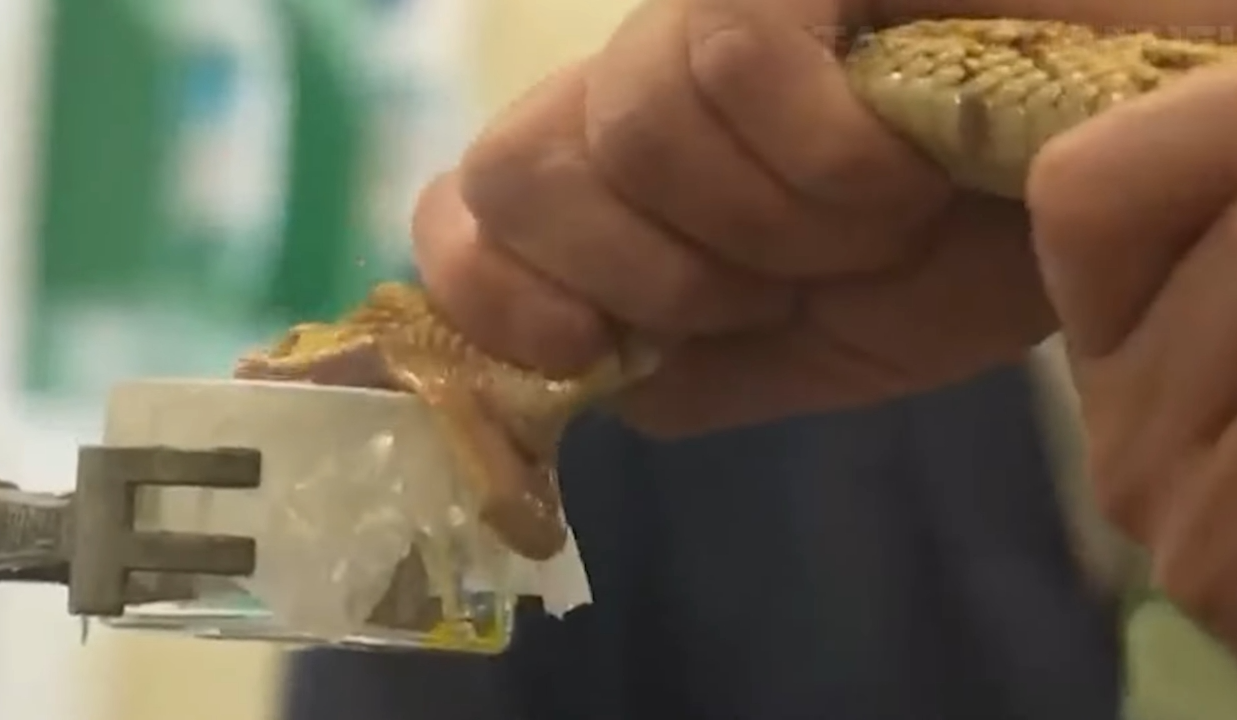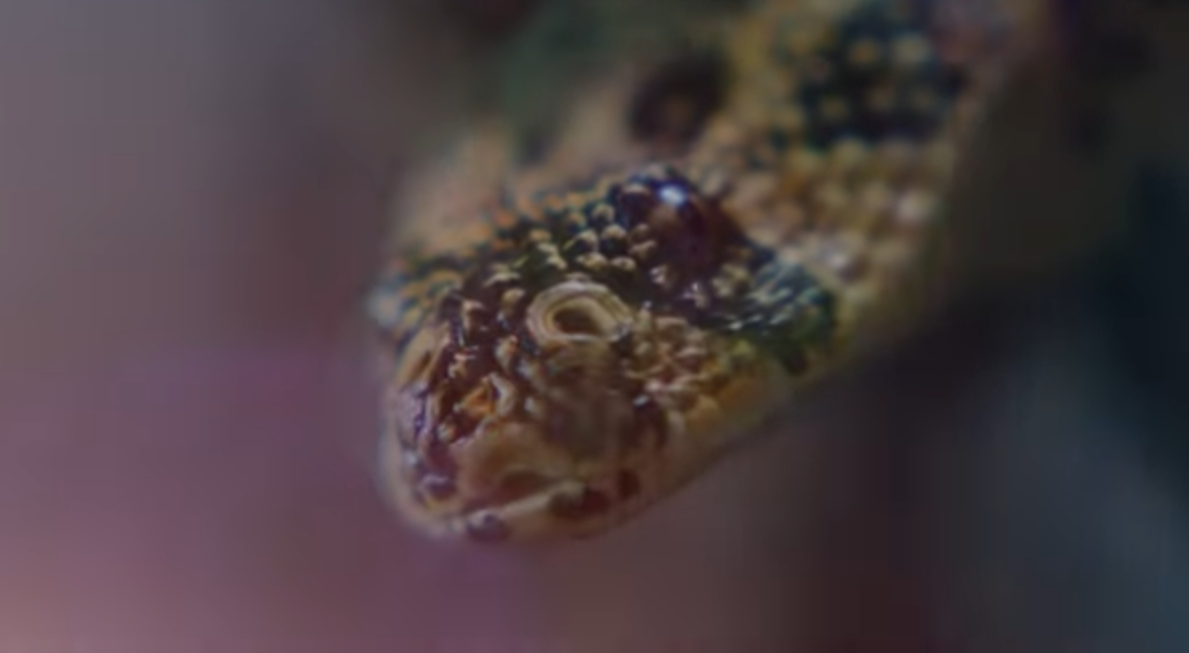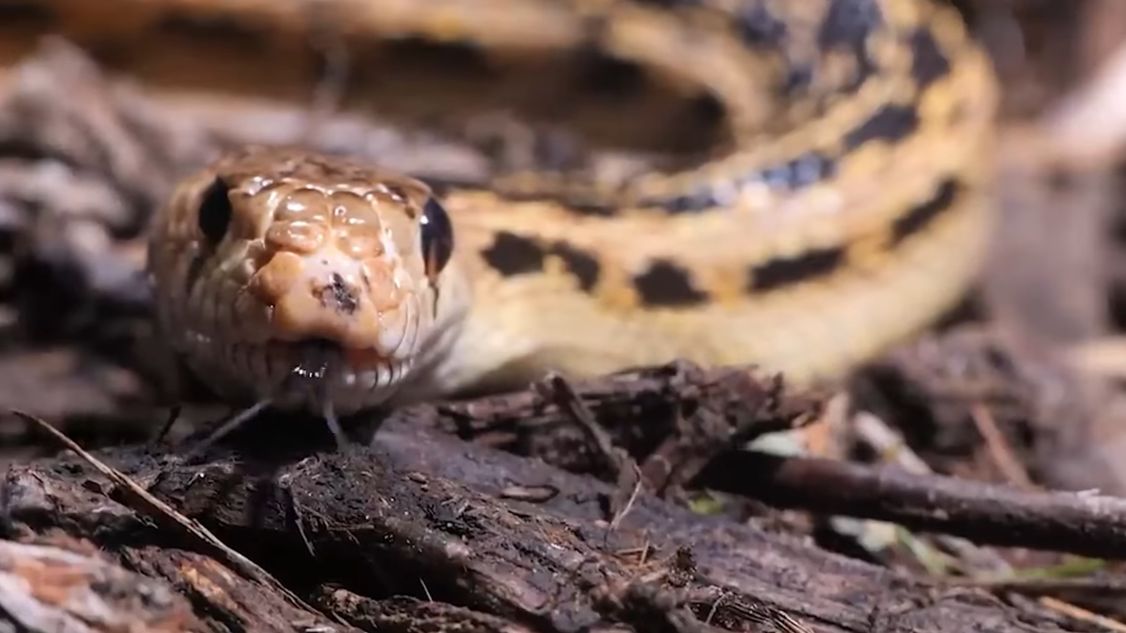1. When bitten:

Ophidiophobia, or the fear of snakes, is a psychological condition characteristic of humans, stemming from the obsession with snake species. The term originates from ancient Greek, comprising the word "ophit" meaning snake and "phobia" meaning fear. Snakes are a species of legless reptiles, which makes them frightening. The obsession increases with the presence of many species of snakes that are highly venomous and large in size. However, not all snake species are venomous. Even non-venomous species can be dangerous by constricting their prey until it suffocates and can no longer resist. Venomous snakes only need to bite and inject venom into the victim's blood, paralyzing the body immediately. There are about 3000 different species of snakes in the world, but only about 15% of them are venomous. Beautifully colored snakes are often the ones with strong venom. The most dangerous snakes, such as pit vipers, cobras, sea snakes, or rattlesnakes, always pose a threat to humans and other animal species.
If you didn't know, about 1/3 of the world's population has a fear of snakes. The level of fear varies, from mild discomfort when encountering large or venomous snakes, to severe cases where individuals may fear all types of snakes, including non-venomous and small ones. Many people even dare not look at images of snakes in pictures or on television. Symptoms of snake fear can include trembling, crying, running away, difficulty breathing, and rapid heartbeat. This is the most common form of herpetophobia.
The fear of being bitten by a venomous snake remains a widespread obsession across global cultures. Regarding the venom of this legless creature, it is a special type of saliva containing a range of enzymes and proteins, similar to human saliva. When venom is produced and stored in this gland, it does not move back through the body, but is usually injected into its prey, where it can infect.
Snake venom is divided into three main groups: cytotoxin, neurotoxin, and hemotoxin. When attacking, snakes often use this venom to paralyze the nervous system, destroy blood cells, or induce unconsciousness. Some venomous snake species can kill hundreds of adult humans.
However, snake venom is not always a type of poison. In fact, it is often broken down in the stomach and does not cause significant harm to the body. Experienced snake hunters even say that if a snake has just eaten its prey, the likelihood of its venom being injected into the prey means it no longer poses a danger to humans.
In summary, if snake venom is ingested orally, you only face risk if your digestive system is damaged. Although there are venomous snakes that can be fatal, the danger depends on the type of venom and the method of exposure to the human body.
The subject will die within minutes, seemingly a talented management of the toxin levels within their body differs from breaking down in the digestive tract. Snakes have adapted these glands to prevent any infection through the level of their own venom having a low level of infection. This has led most researchers to believe that as snakes evolved, they developed antibodies to protect themselves from their own unique venom mixture.
2. Research:

Research indicates that snakes of the same species often do not use venom in attacks when fighting for territory or mates. This may be explained by the fact that snakes know their venom will not necessarily provide an advantage in combat. So, can venomous snakes bite themselves to the point of death? The answer is yes. If their venom is injected into their blood or injected by another snake, the effects of the venom are similar to when a snake injects it into a human. In other words, a snake can commit suicide by biting itself provided it injects its venom into its own blood.
Snakes are formidable and fascinating creatures, quite confident to spend their lives with deadly venom sacs hidden just behind their eyes. So what is our specialty in Vietnam? Snake wine. Many people also wonder if eating such venomous snakes is dangerous. The answer is no. Because the venom is two glands located in the snake's jaw, not in the meat. According to traditional medicine, snake meat has a sweet and salty taste, is warm in nature, and has effects on treating wind and dampness. Ancient people ate snake and found pain relief, which is not coincidental as the image of the snake has been associated with the medical field for thousands of years.
According to Greek mythology, the teacher Alcides, when going to cure the poor, always carried a staff with a rough head adorned with a snake wrapped around it. In India and many other countries, snakes are worshipped as deities. Since ancient times, it has been discovered that snakes have healing properties, and it seems that the saying "using poison to treat poison" in Eastern medicine is being validated by modern medicine. Drinking snake bile wine has long been familiar to drinkers, but drinking wine with snake venom is not known to everyone. Snake wine is a type of liquor that has existed since the Western Zhou period of China, around 771 BC. And according to traditional Chinese medicine, this is a very effective medicinal remedy.
Many Southeast Asian countries often use the method of soaking dead snakes, usually venomous ones, in high-proof rice wine to create a special type of liquor. The snakes are soaked whole, usually in odd numbers. And it is important when soaking not to lose the snake's bile. After soaking for a period of one to several years, the wine can be used. The belief that the more venomous, the more nourishing, and the more unusual, the more it demonstrates masculinity and style. This has led to an increasing number of people seeking this pleasure. However, according to Professor Duong Trong Hieu.
3. Using snake venom:

If snake venom is used arbitrarily, it poses many risks to life. Professor Duong Trong Hieu emphasized that this is a dangerous joke. First, snake venom can affect the nervous system, causing paralysis, pain, and respiratory failure, cardiac arrest. Second, the venom contains foreign proteins, which can cause unwanted allergic reactions, ulcers, and are very difficult to treat. Third, it can destroy blood cells, rupture red blood cells, causing blood loss very quickly. Professor Hieu also advised us to remove the venom before using snakes for soaking in wine. It is best to cut off the snake's head, internal organs, and then soak the venom.
This is like a double-edged sword: if used correctly, it can bring unexpected effects, but if abused, it can have serious consequences for life. Therefore, to ensure one's own safety, we should follow the professor's advice and avoid experimenting with eating anything related to snakes and snake venom when we are not sure of its harm to the body.
Drinking snake venom directly is a dangerous act and can lead to serious consequences for human health and life. When a person drinks snake venom directly, the toxic compounds in the venom will come into direct contact with the mucous membranes of the digestive tract, which can cause terrifying effects on the body.
One of the first effects that snake venom can cause when ingested directly is its impact on the digestive system. Snake venom contains toxic substances that can cause inflammation, ulcers, pain, and damage to the stomach and intestinal lining. Symptoms such as nausea, vomiting, abdominal pain, and diarrhea may appear immediately after drinking snake venom, and can lead to dehydration and loss of body fluids, causing extremely dangerous dehydration.
4. Snake venom:

Snake venom can also cause problems with the nervous system. The toxic compounds in the venom can directly affect nerve cells, causing paralysis, muscle spasms, and issues with vision and sensory perception. This can impair the ability to control the body and weaken the body's systems, leading to serious health complications.
The effects of snake venom are not limited to the digestive and nervous systems, but can also spread to the circulatory system. The toxic compounds in snake venom can cause blood pressure issues, such as hypertension or hypotension, and can cause heart rhythm problems, such as irregular heartbeat or excessively fast heartbeat. These effects can lead to serious complications, such as cardiac arrest or stroke.
The effects of snake venom can also extend to other internal organs in the body. The toxic compounds in the venom can cause damage to the liver, kidneys, and lungs, leading to functional issues with these organs. These damages can lead to organ dysfunction and result in serious health consequences.
In the most severe cases, drinking snake venom directly can lead to immediate death due to serious complications such as respiratory failure, heart failure, or cardiac arrest. The toxic compounds in snake venom can cause a rapid decline in body function and lead to chemical imbalances, resulting in death.
Therefore, drinking snake venom directly is an extremely dangerous act and should not be performed. In any case related to exposure to snake venom, one should seek medical assistance as soon as possible to treat and prevent serious complications.
